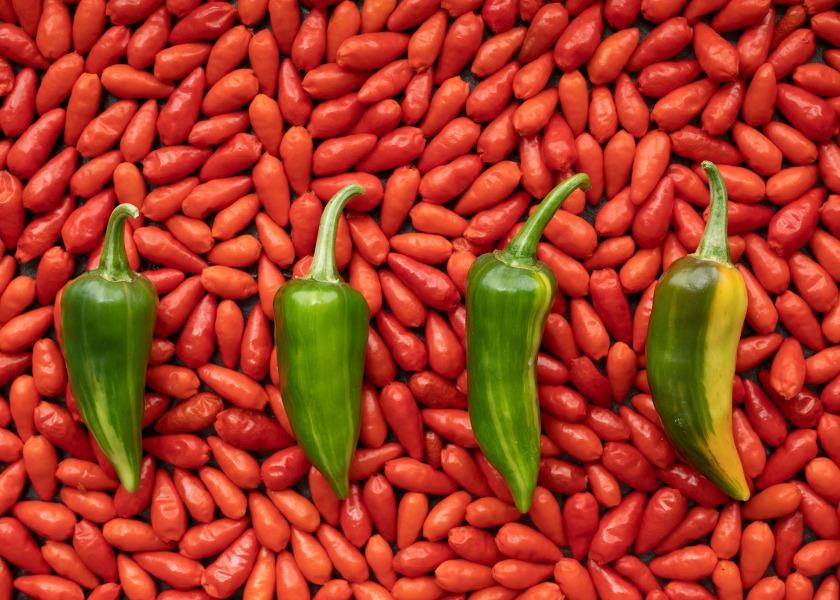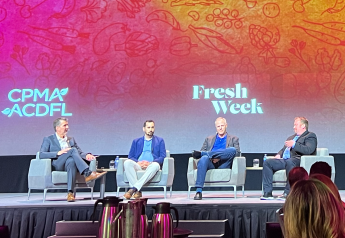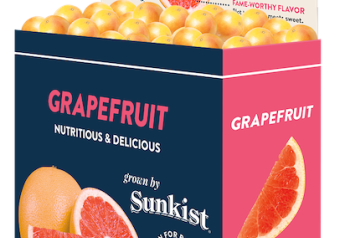Future-proofing produce: Meet the seed-breeders and change-makers driving trends in cultivation

Something as simple as a seed, a pale sliver nestled in a paper sleeve, can at first glance seem innocuous. Despite appearances, seeds have the power evoke deep emotion.
The recent pushback and rally cry from non-GMO advocates in response to the FDA’s recent approval of Norfolk Plant Sciences’ bioengineered tomato, bred for its purple hue, was a clear reminder that for many seeds are, in fact, quite personal.
Similarly, Mexican President Andres Manuel Lopez Obrador’s recent move to ban the importation of genetically modified corn and add a 50% tariff on imported white corn is another clear signal that not only are seeds — and the foods produced from them — can be political, but seeds are often connected to a cultural heritage and sense of place that, for many regions and governments, is deemed worth protecting.
As produce buyers and specialty crop growers hunt for the perfect high-performing fruit or vegetable variety that will produce a high-yielding, predictable crop and delight customers, it’s tempting to rely on what has worked before. But some growers, advocates and food companies are driving innovation and pushing the industry to see things differently.
Looking to the past for produce’s next big thing
In Slow Food USA’s "The Ark of Taste" — out on Aug. 22, 2023 — co-authors Giselle Kennedy Lord and David Shields share the story of America’s most unique and distinctive foods, which including fresh fruits, vegetables and nuts. The compendium includes cultivars from across the nation that give “the United States its culinary identity” and make Slow Food USA’s the case for keeping a host of heirloom varieties in production and on our plates.
Kennedy Lord hopes that "Ark of Taste" sparks a curiosity in shoppers and that they start seeing fruits and vegetables as more than anonymous commodities.
“When I see a bottle of orange juice, I know it’s not just simply an orange,” she told The Packer. “Sometimes just naming the variety [of fruit or vegetable] lets people know that there are other varieties out there.”
Naming the specific variety, according to Kennedy Lord, sparks interest and encourages hungry eaters to think deeper about what they are eating or imbibing.
Another byproduct of knowing more about individual varieties and the heirloom histories of the fruits and vegetables from the produce aisle is that it also helps us pay homage to the actual origin of the specific foods, she added.
Mara Welton, a farmer and Slow Food USA’s programs director, agreed that the driving force powering innovation and change starts with curious eaters.
“The more that eaters request interesting produce and support biodiversity in the grocery store, the more that encourages growers to have more diverse fields, which is better for the environment,” Welton told The Packer.
What it boils down to, Welton said, is relationships.
When you highlight a specific variety, you’re telling that story. But when a variety becomes a commodity product, she continued, people just see a red tomato and they think it's a just tomato; they don't think about its history, where it come from or why we have it today.
Welton thinks this does a disservice to both the food and the eater. It’s easy in today’s world to lose touch with the very foods that give us our identity and sense of place, she said, adding that it’s worthwhile for produce buyers to connect to the bigger story behind the fruit or vegetables.
“There are so many stories of tomatoes that had been passed down by immigrants, who bring their seeds with them as they move from country to country to start a new life. In those seeds are our hope and the hope for a new future,” Welton said. “Keeping those seeds alive keeps those memories alive.”
What’s more, some of these old, indigenous and heirloom varieties are already adapted and have survived climate uncertainty, she added.
“So, bringing [heirloom and indigenous varieties] back might help us out of a jam in the future if certain varieties that have been taken out of their home don't perform well in a new region. Maybe going back to the old varieties of that place can really solve problems,” Welton said.
Plus, some varieties are just worth celebrating.
“The fish pepper is a beautiful West African pepper that came [to the U.S.] with enslaved Africans,” she said. “The pepper is stripy, gorgeous and perfect in salsa because it's the right amount of heat. … I want more people to see them at the farmers market and ask for them. ... Talk about buying with your eyes — they're stunning peppers.”
Greater than the sum of its parts
Stemilt Growers Marketing Director Brianna Shales thinks that the key to ensuring a product like apples can continue to grow into the future involves developing new cultivars that work for the grower, retailer and consumer.
“A new variety won’t be successful unless it is resilient to common pests and diseases and weather. Our R&D team is always working to find great-tasting fruits that will also be grower-friendly,” Shales told The Packer.
At Stemilt, researchers use cross-pollination to create new fruit varieties that Stemilt commercializes, Shales said.
“The combinations of parent varieties are chosen to meet many characteristics, including resiliency,” she said. “It’s not a perfect selection process because there are still attributes that will require horticulture work to get through, but it is a good approach to finding balance with new variety selections.”
But when they finally land on the right characteristics, you’ve struck gold.
“We are the marketers of a new pear cultivar developed at Vineland Research and Innovation Centre in Canada. It’s called the HW624 cultivar but is sold under the Happi Pear trademark in the United States," she said. “HW624 is fire blight-resistant — a disease that can impact an entire orchard if the conditions are right during bloom. HW624 also tastes fantastic, so it meets our high bar for consumer satisfaction.”
These combinations of traits make for a winning, resilient pear.
“We feel this new variety could revolutionize pears and be a great benefit to grower, retailer and consumer,” Shales said.
Innovating for climate resiliency
Breeding can also encourage resiliency in the changing climate, especially in the Western U.S.
“Growers are testing apples that are bred to be grown in hot climates,” Shales said. “This is in response to a trend of warmer summers in Washington and fits with our already desert climate.”
The crop science division at Bayer also sees seed breeding as a way to increase resiliency in the face of a changing climate.
“Diverse seed types and varieties or hybrid seeds can help further minimize the risks farmers are facing today and the challenges imposed by climate change in the future,” Cristiane Lourenço, global sustainability director for vegetable seeds at Bayer's crop science division, told The Packer.
“The Huntington sweet pepper variety is an example that performs well in both low temperatures (5 C) and high temperatures (40 C) — a great example of variety that can support smallholders in India to cope with the changing climate,” she said.
“Another example comes from California where Bayer has been working to develop solutions to improve productivity and quality of processing tomatoes through breeding,” Lourenço continued. “It has played a prominent role by using molecular markers, trait integration and cutting-edge testing methods in the development of high-yield potential processing tomato hybrids through the years.”
Seed breeding is important to the biotech company to support global agriculture, Lourenço said.
“The amount of arable land and natural resources on the planet is fixed, while the world population is growing at exponential rates,” she said. “Continued investment in innovation will help agriculture to continue a more efficient trajectory.”
According to Lourenço, Bayer sees solutions innovations to productivity and quality of produce in both breeding, crop protection and digital solutions.
“Regardless of the geography, climate or plant characteristics — sustainable production of fruits and vegetables is continuously evolving to meet current and future challenges,” she said. “For future challenges, innovation and technology play an important role to support crop resilience and a more regenerative and climate smart production.”







